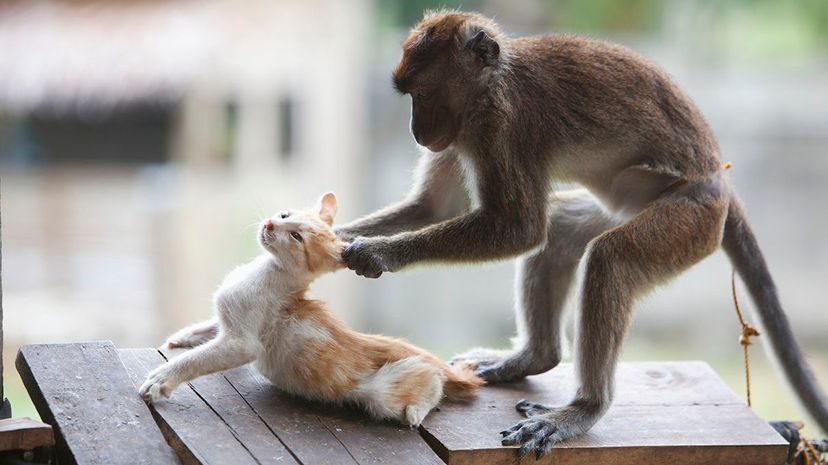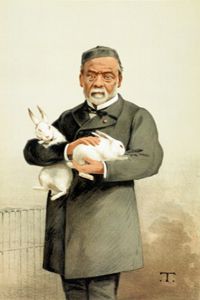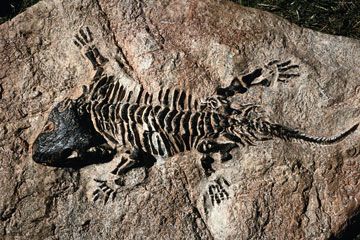
In November 2016, a small audience of a few hundred people gathered inside the stately Victorian-era building in London that houses the Royal Society, one of the oldest and most esteemed scientific organizations in the world. Bringing them together? The conference titled"Evolutionary Biology: Biological, Philosophical and Social Science Perspectives."
Despite the dry title, the subject was a momentous one. A small group of researchers presented their case for a major revision ofstandard evolutionary theory. For the past 70 or so years, science has explained how living things change over generations through an approach called Modern Synthesis. It essentially grafts the population genetics pioneered byGregor Mendelonto the concept of natural selection pioneered by naturalistCharles Darwin. In Modern Synthesis, random genetic mutations create characteristics in organisms, and the environment decides which characteristics work best and will be passed along to future generations.
Advertisement
Modern Synthesis has beenhailed as one of the greatest intellectual achievementsin the entire field of biology. But in recent decades, scientific advances — such as the ability to manipulate genes and turn them on and off in developing embryos — have provided us with a plethora of new information, and insights into how organisms develop and change. That's led some scientists, such as Kevin Laland, a biology professor at the University of St. Andrews in the U.K., to argue that it's time to adopt an updated version of evolution which they callExtended Evolutionary Synthesis, or EES.
Laland says that ESS doesn't totally junk standard evolutionary theory, but instead builds upon it by adding a few new twists. In addition to evolving through random mutations and natural selection, individual organisms themselves can influence how their species evolve, by choosing and modifying their environments.
与传统的“nary theory, EES "emphasizes that variation is nonrandom, there is much more to inheritance than the transmission of genes, and that natural selection is not the only cause of adaptation," says Laland via email.
Plants, for example, don't just sprout from the soil and sit there. As Laland explained, they modify their environments: altering the temperature, atmospheric composition and water level of soil; influencing the cycling of nutrients and chemicals in the soil; creating shade. Animals also alter their surroundings by constructing nets and burrows, and by picking the particular habitat in which they live, breed and find food for the next generation. This sort of behavior, which biologists call "niche construction," helps decide whether a random mutation is successful or unsuccessful.
“生物带来的变化nvironment mean that they are not passive victims of natural selection, but rather often actively determine how selection acts on them," Laland says. "Niche construction initiates and modifies the natural selection acting back on the constructor, and on other species, in an orderly, directed and sustained manner. By consistently generating specific environmental states, niche construction co-directs adaptive evolution by imposing a statistical bias on selection."
Some organisms, in fact, can change their characteristics without any mutations at all. In aQuanta articleabout the conference, Wesleyan University evolutionary biologist Sonia Sultan cites the example of the smartweed, a plant that belongs to the genus Polygonum. Smartweeds adjust the size of their leaves to the amount of sunlight to which they're exposed. In a bright environment, one smartweed will have narrow, thick leaves, while in low light, a second smartweed will develop broad, thin leaves, even though the two plants are genetically identical.
As EES proponents see it, this ability to change (which biologists call plasticity) may help drive evolution by allowing plants to spread into a range of different habitats, where random mutation and natural selection then can further alter their genes.
Not everybody agrees that a shift to EES is necessary. In a2014 essayin the scientific journal Nature, for example, defenders of Modern Synthesis argued that the current system is a much more reliable way to explainthe evolution of organisms.
"The precise genetic basis for countless adaptations has been documented in detail, ranging from antibiotic resistance in bacteria to camouflage coloration in deer mice, to lactose tolerance in humans," they wrote.
But as University of Vienna biology professor and EES proponent Gerd Müller explains, he and others in the EES faction sees signs that the evolution of evolution is going in their direction.
"Most of the reactions we get, especially by younger scientists and philosophers, are very positive," he says in an email. "But those evolutionary biologists who by tradition owned explanatory authority in evolutionary theory (primarily population geneticists) are losing this privileged position in the EES, and some don't take it well. I don't think it will be difficult to overcome this obstacle, because a shift towards less dogmatic attitudes is happening everywhere in science, not only in evolutionary theory."
Advertisement


